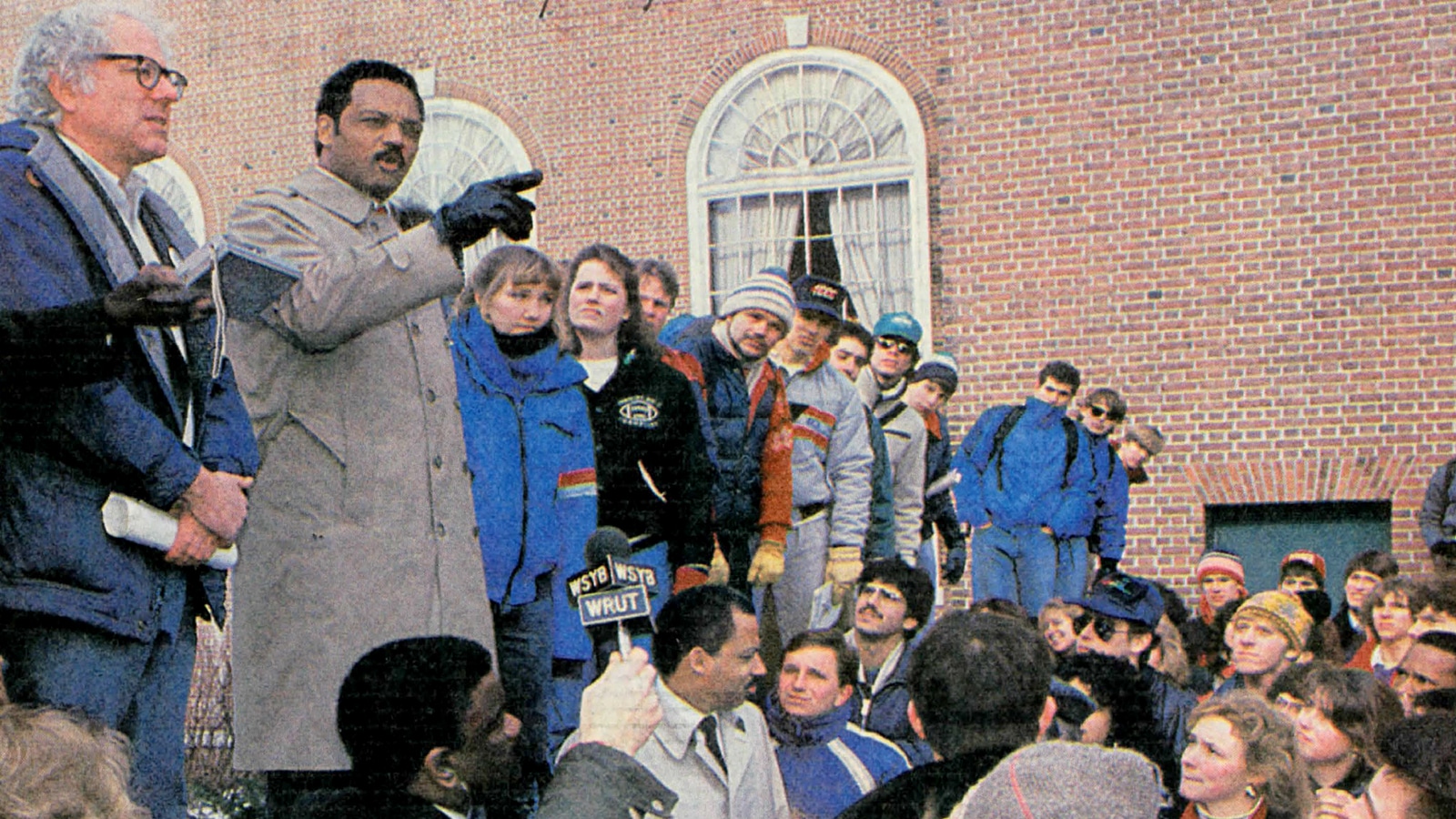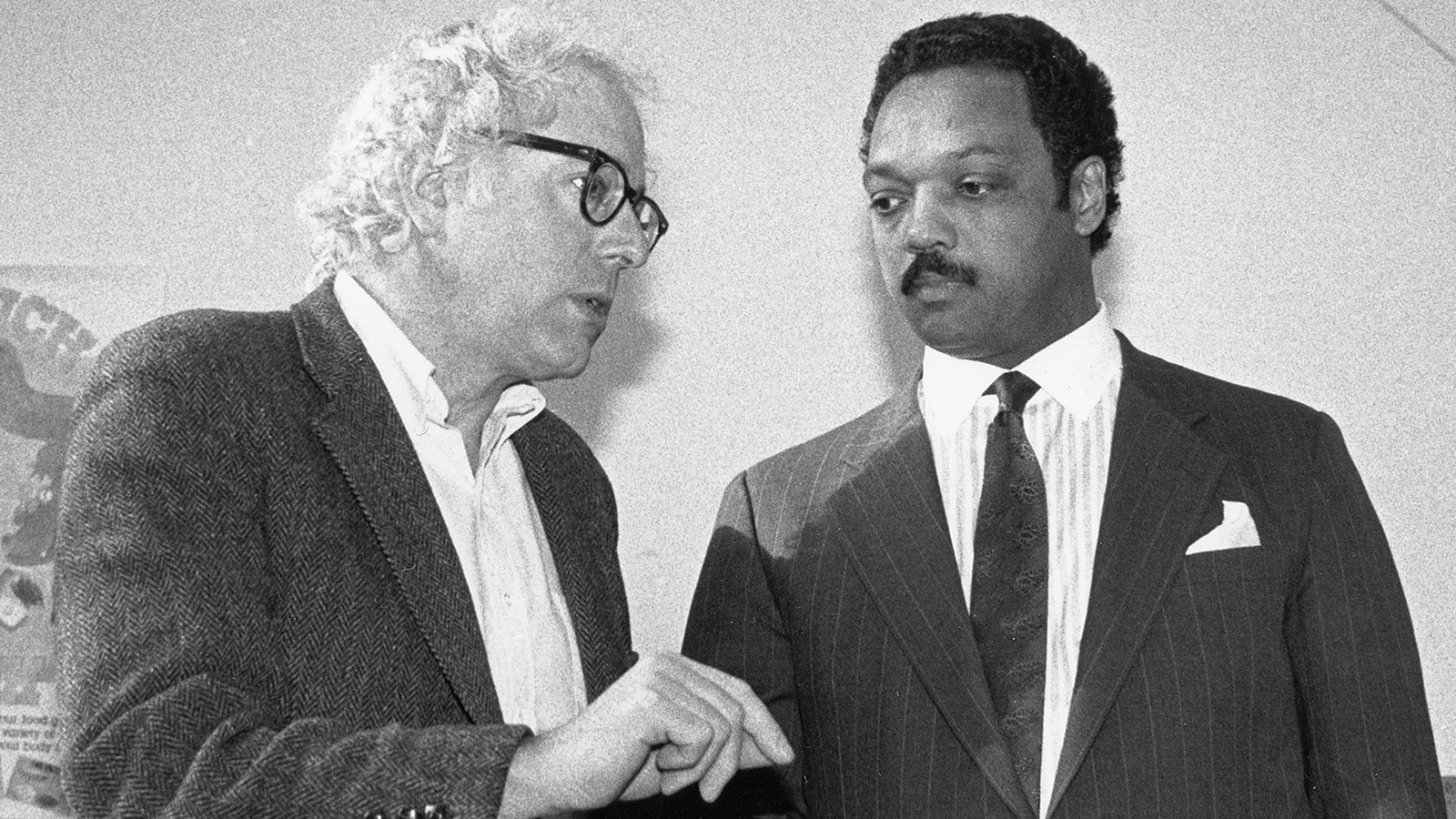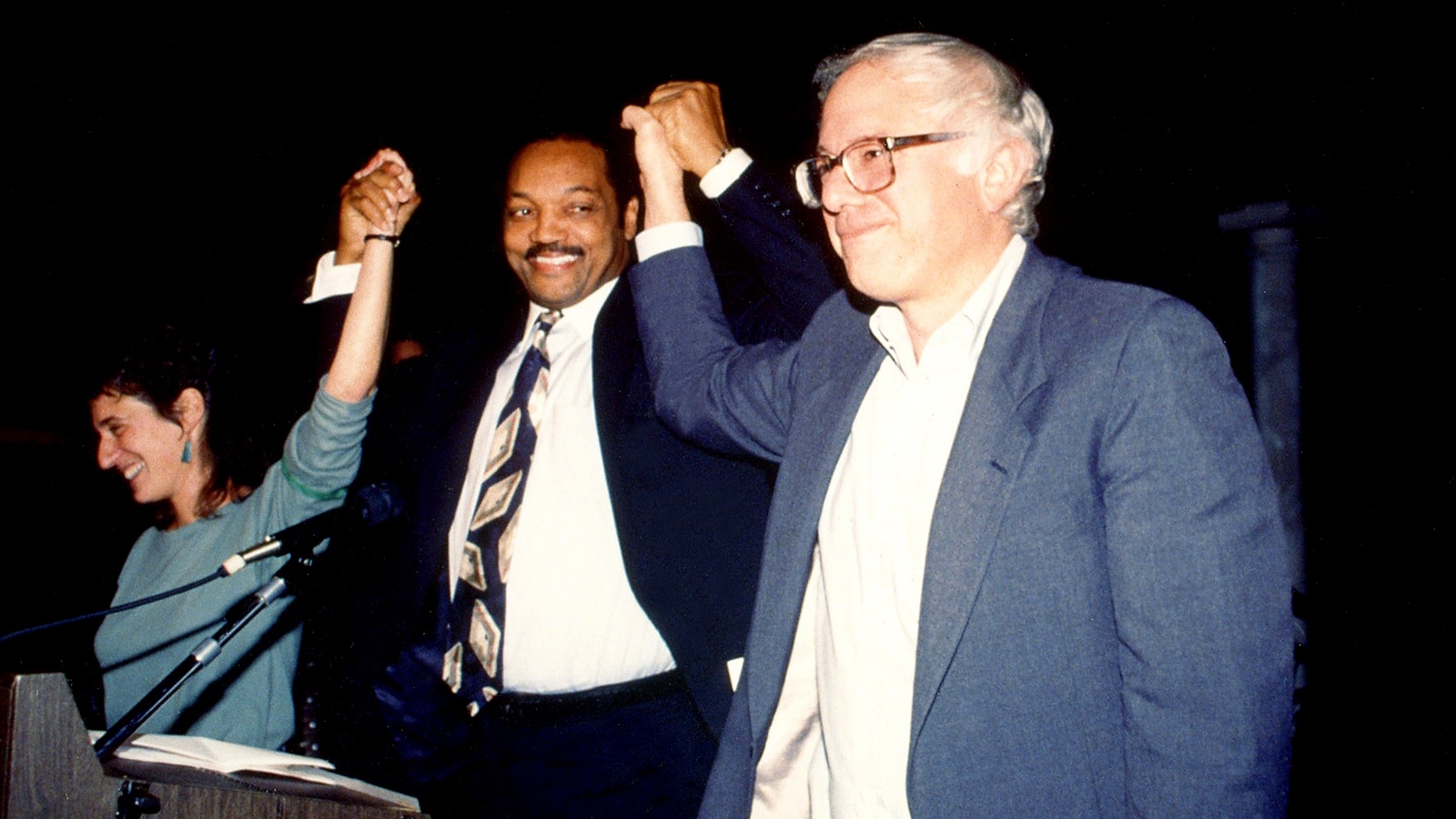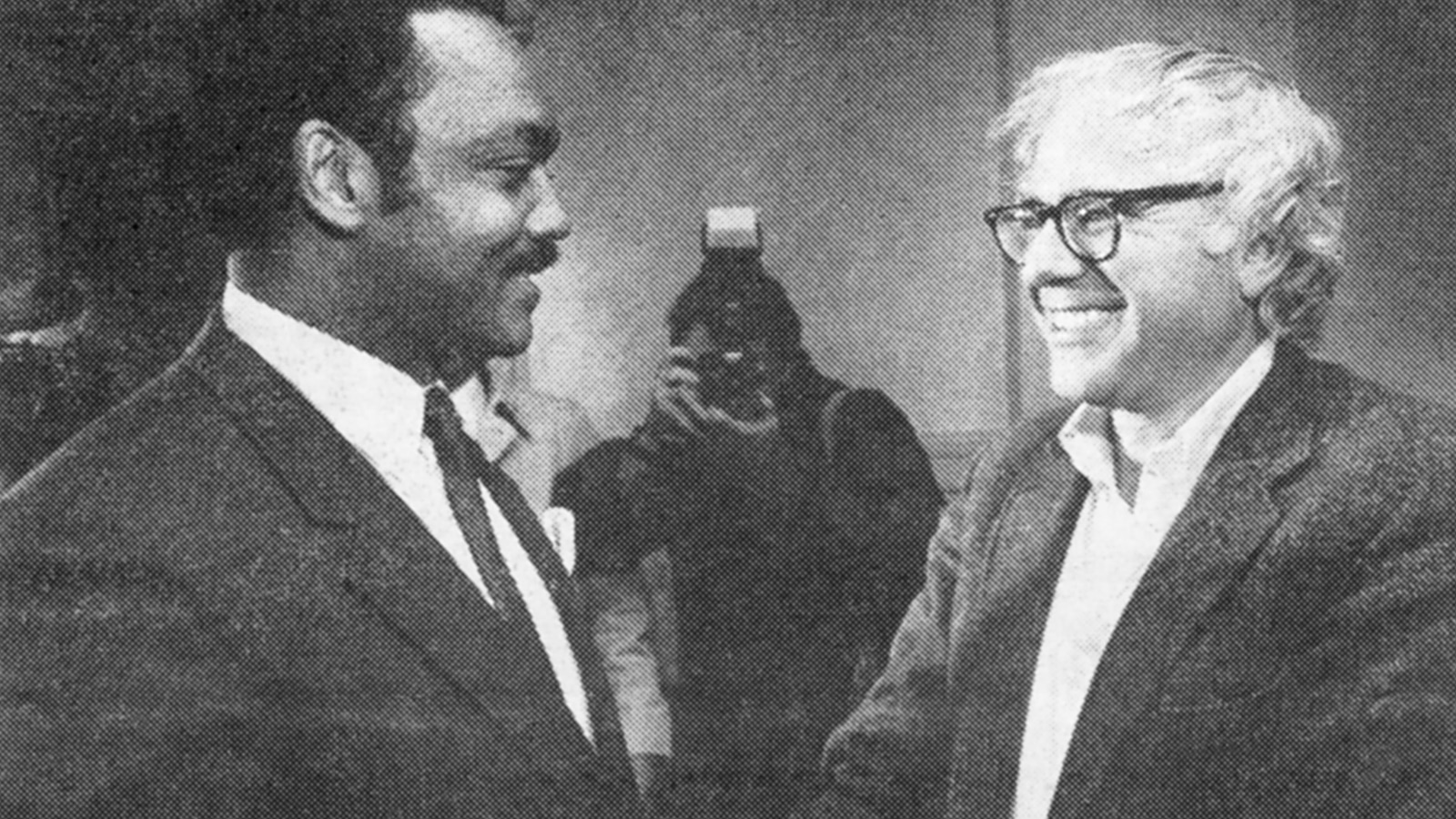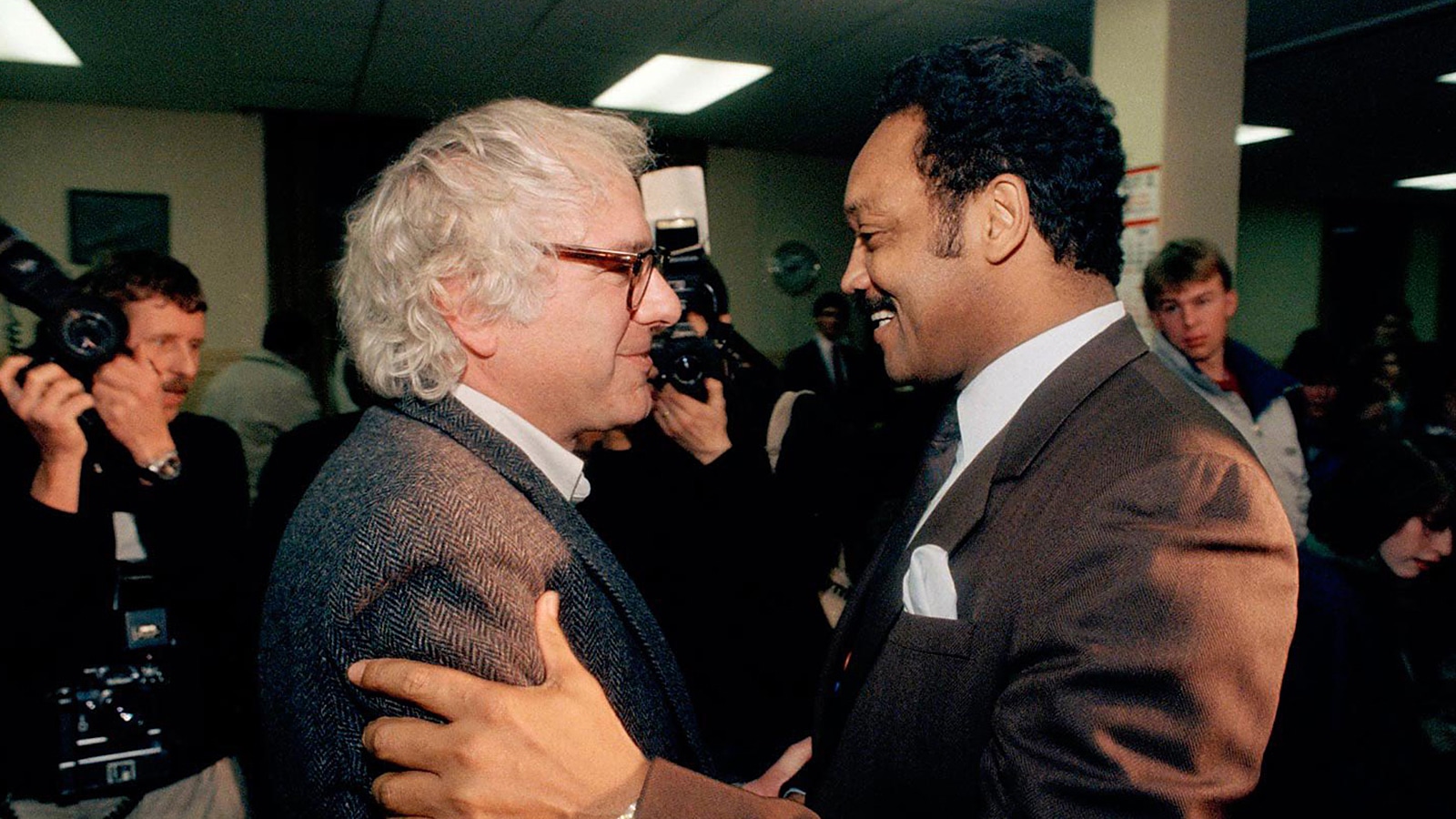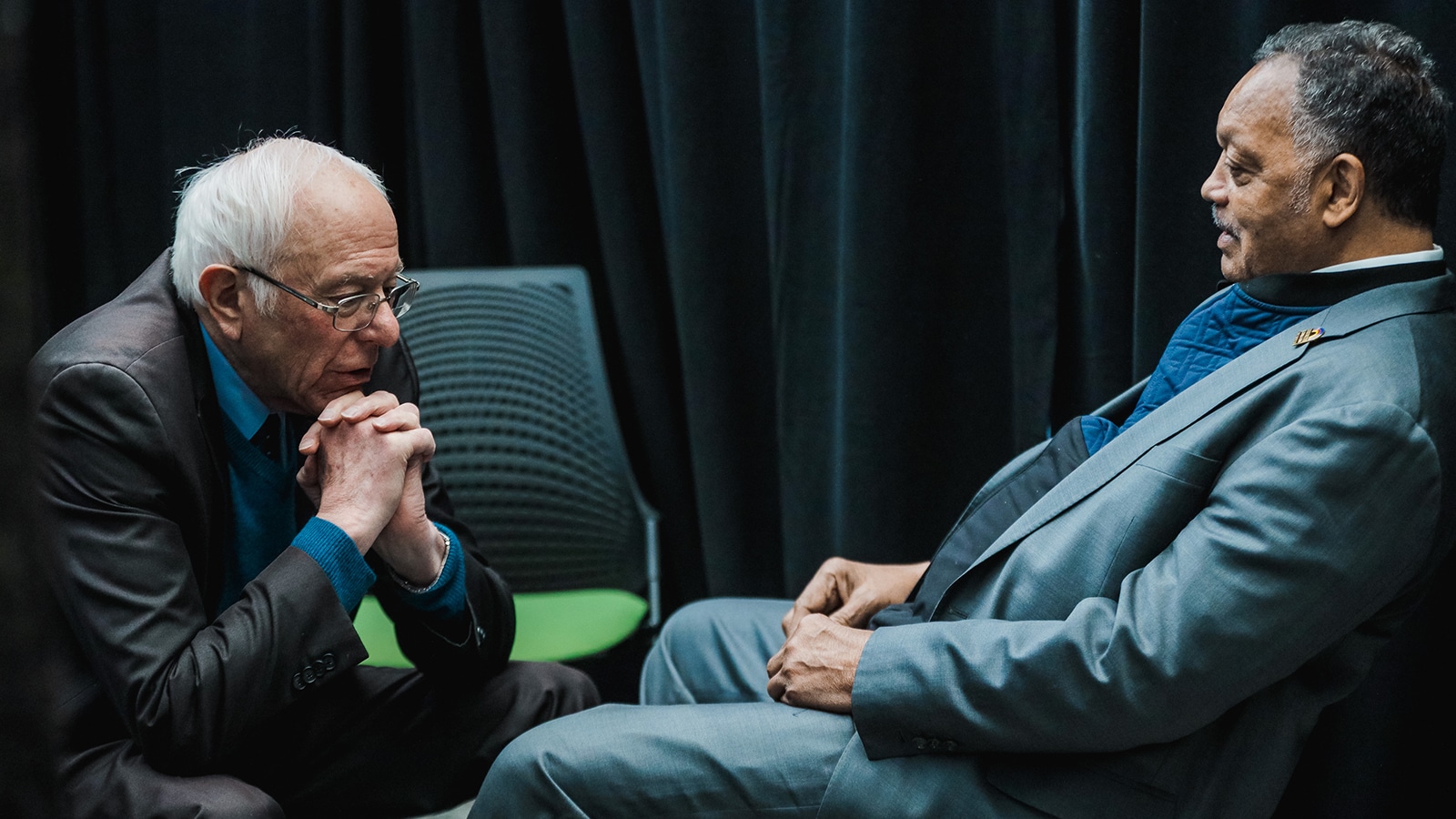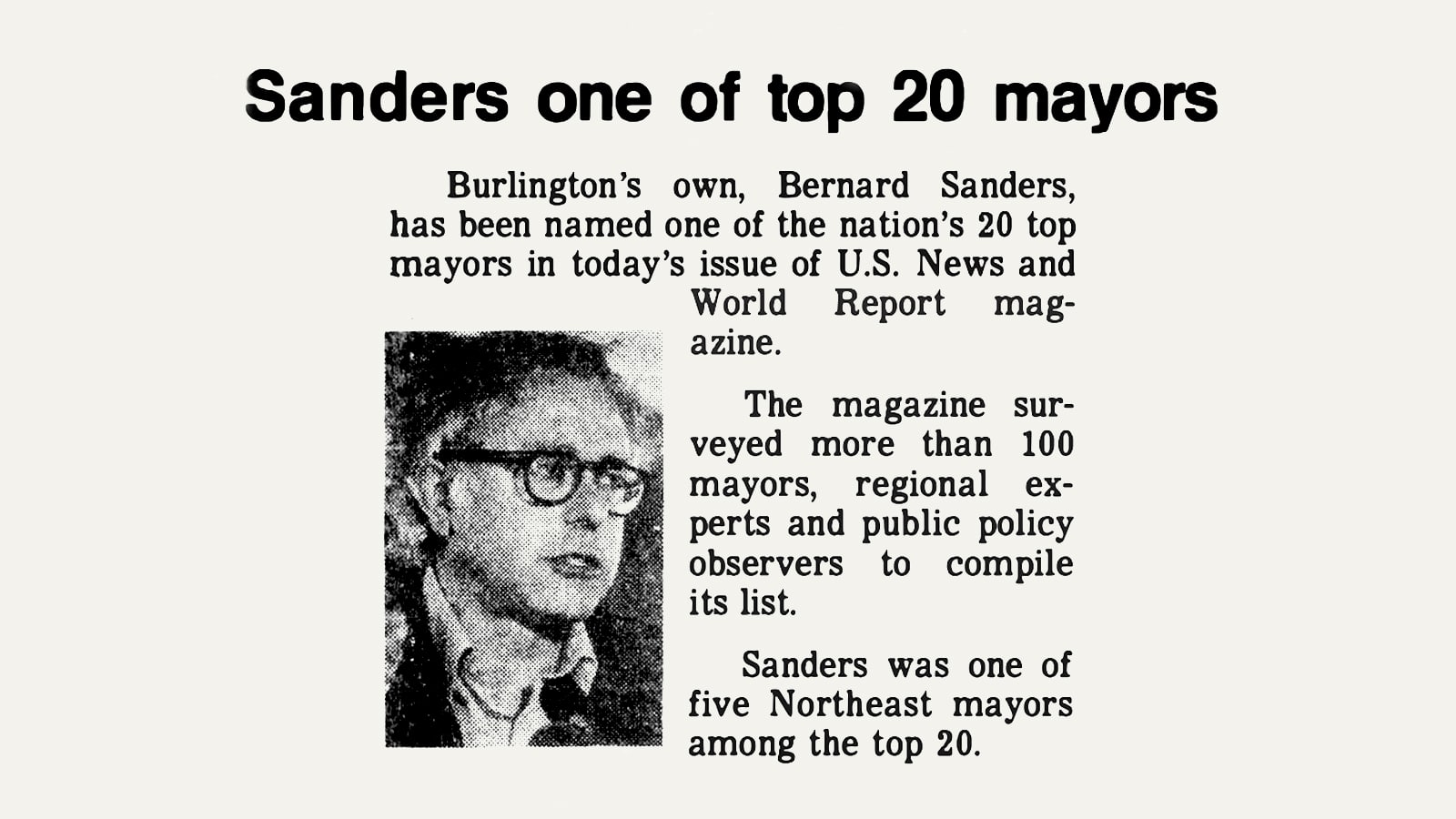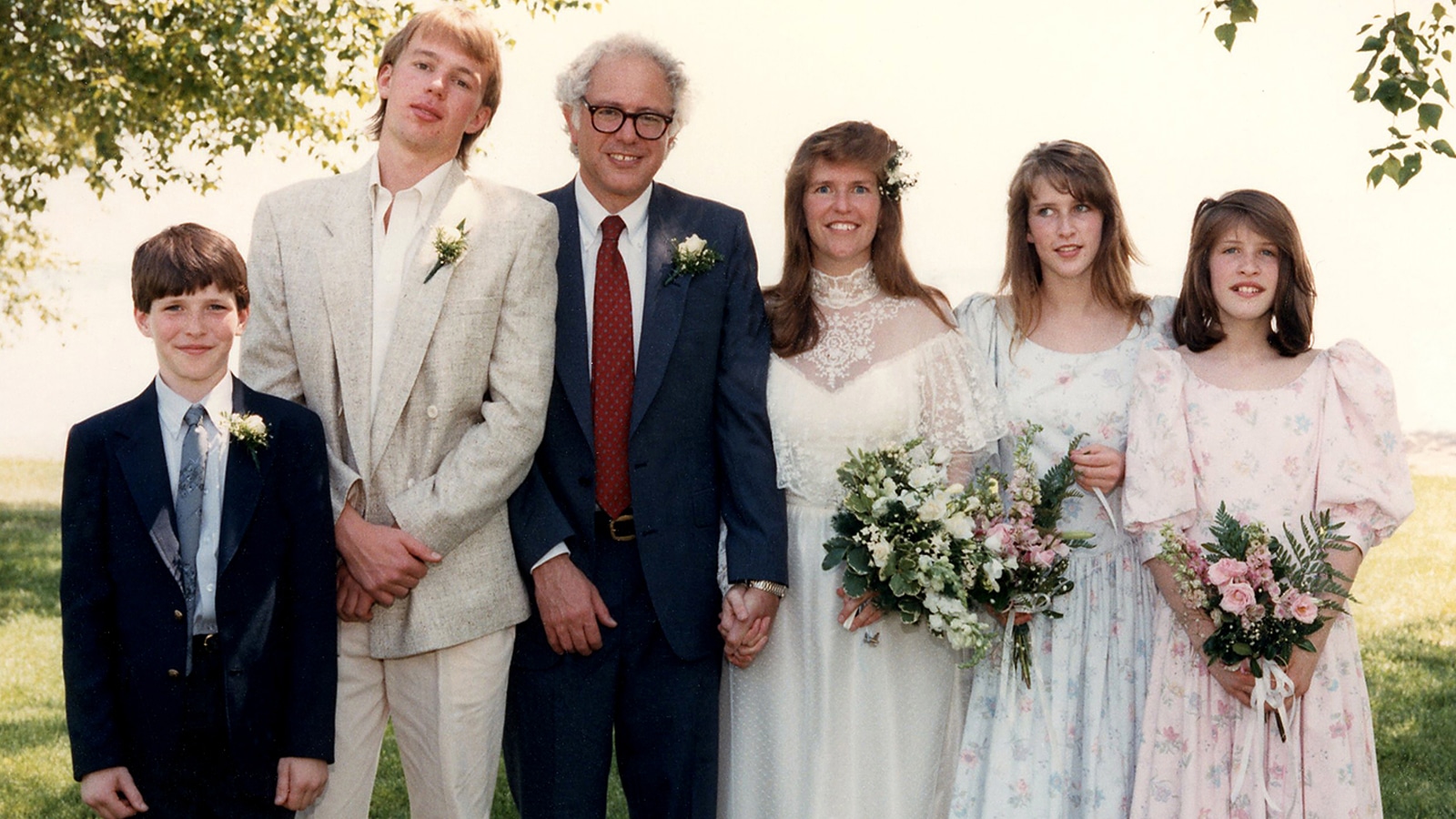In February 1988, the Reverend Jesse Jackson brought his U.S. presidential campaign to Burlington, Vermont and Mayor Bernie Sanders stood by him at campaign stops throughout the state. After his recent fourth-place Democratic primary finish in Iowa and with the New Hampshire primary still ahead of him, Rev. Jackson was optimistic about Vermont, believing that a primary victory in “an essentially white state” was possible.[1] He compared the Iowa caucus to “the opening game of a 50-game season” and stressed the importance of fundraising to compete against the establishment. Sanders supported Jackson with a rallying cry to step-up donations for local Vermont campaign efforts, telling the crowds, “you can’t run when you’re outspent 20 – 1.”[1]
In retrospect, it is no surprise that the young Mayor Sanders was one of the few political figures to endorse Rev. Jackson at the time. Although the Reverend came in first or second in 25 state primaries and caucuses and achieved more popular votes than any other Democratic candidate, not a single Senator or Governor had the courage to step forward and endorse him. Few Vermonters did either. However, Jackson’s campaign resonated with Bernie – who admired the Reverend’s ability to bring together minority groups, environmentalists, peace activists, farmers, and people looking for a fundamental change in the political and economic system – and new national priorities.[2]
A quarter of a century later, Jackson’s visionary campaign would see new light as a roaring rallying cry for a disenfranchised America – this time when an older Senator Sanders shook the establishment by reintroducing many of Reverend’s same themes during his own 2016 and 2020 presidential runs: end the growing disparity between rich and poor; establish a national health care system as a human right; preserve the family farm; increase federal aid to education, social services, and environmental protection.[2] This time, the majority of America was ready to hear it. Jackson was, indeed, ahead of his time.
In 2020, the Rev. Jackson also reciprocated Sanders’ early support by endorsing his bid for president:
“With the exception of Native Americans, African Americans are the people who are most behind socially and economically in the United States, and our needs are not moderate. A people far behind cannot catch up choosing the most moderate path. The most progressive social and economic path gives us the best chance to catch up, and Senator Bernie Sanders represents the most progressive path. That’s why I choose to endorse him today,” Jackson said.
A CNN article[3] announcing the endorsement harkened back to the origins of their relationship:
“The relationship between Sanders and Jackson dates back to 1988 when then-Burlington Mayor Bernie Sanders endorsed Jesse Jackson for president at the Burlington Democratic presidential caucus.
Sanders, in a five-minute speech at the time, praised Jackson as “a candidate for president who has done more than any other candidate in living memory to bring together the disenfranchised,” “a candidate who is creating a historic coalition, of working people, of poor people, of women, of minorities, of students, of farmers, of peace advocates, of environmentalists” and “a man who has waged the most courageous and exciting political campaign in the modern history of our nation.”
Sanders still talks about his support for Jackson’s 1988 presidential bid on the campaign trail.
“I am proud to tell you that in 1988, a long time ago, I was one of the few white elected officials I was mayor of the city of Burlington who endorsed Jessie Jackson, who brought him to Vermont, and we won Vermont for Jessie Jackson,” Sanders told the crowd late last month at the National Action Network ministers breakfast in North Charleston.
“I think Jesse Jackson has never gotten his full due,” Sanders said on The Nation podcast “Next Left” in November, calling Jackson “absolutely” an inspiration.”
 Back to Timeline
Back to Timeline
